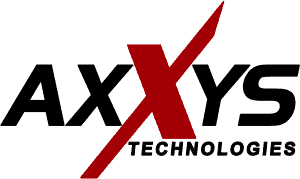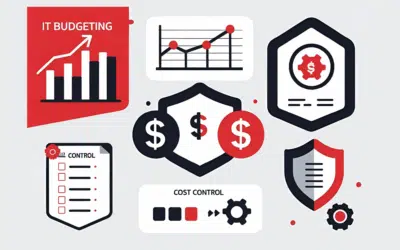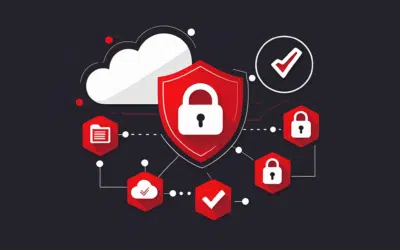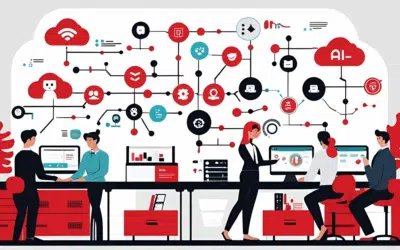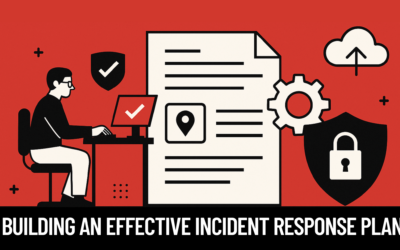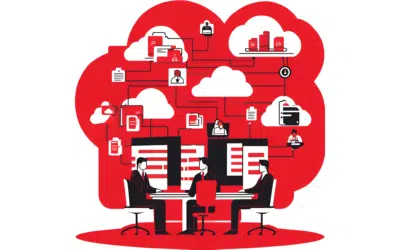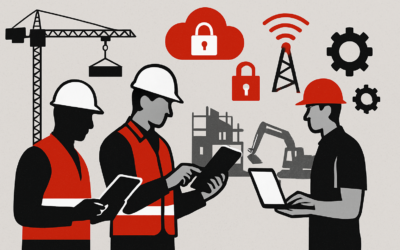A primary concern for most business owners is how to get the most bang for your buck. When you’re purchasing expensive technology, this becomes an even more valid point of consideration.
Buying computers is one of the larger investments you have to make in order to effectively run a business. To avoid surprise crashes and loss of data, it’s not recommended to hold onto a frequently used computer for more than four to five years. However, there are things you can do to help prolong its life span and enable it to perform better over time, saving you money in the long run.
Keep it clean
Dust, dirt, food and other particles tend to accumulate in the crevices of keyboards, mice and monitors. If not removed, these particles can scratch hardware components and eventually build up enough to cause overheating, shortening the life of your computer. To avoid this, make sure to dust and clean your computer and its accessories on a regular basis. Compressed air is a great way to get small particles out of keyboards and tight cracks.
Keep it dry
PCs and liquids do not go together well. Never drink or rest water, coffee, soda or anythingliquid near a desktop or notebook. A spill could mean you’ll be buying a new one much sooner than you had planned. For a little extra insurance and protection, HP offers optional HP Accidental Damage Protection Care Packs.
Give it space
This tip applies mostly to notebooks. The nice thing about them is that they’re portable. On business trips, it can be tempting to set them down on a hotel pillow or bed while you’re casually answering emails or doing research. But soft, padded surfaces do not allow airflow into the ventilation holes underneath the notebook, which leads to overheating. To limit this risk, make sure you always rest your notebook on a cool, solid surface, allowing air to travel underneath it.
Protect it
Viruses could be the biggest threat to the health of a notebook or desktop. One of the very first things you should do when you buy a new computer is install anti-virus software. Some popular, effective applications include Microsoft Security Essentials and McAfee. Make sure you also take advantage of HP Protect Tools, a suite of security tools available on many HP PCs that lets you manage security for all of your business desktops and notebooks from one central point.
Give it more memory
Painfully slow processing is a sign that your computer may be starting to fade on you. Add extra RAM (random access memory) to relieve the strain of an overloaded machine. Once it stops relying on hard disk memory, your computer’s performance will become exponentially faster.
Keep it uncluttered
All of the programs that you don’t currently use on your computer are taking up valuable space. Getting rid of them will improve performance and save memory. Most PCs have a “disk cleanup” function that will delete “unseen” files and empty caches. You can also go through your files manually and remove anything you haven’t been accessing.
Choose it wisely
There are many things to consider when purchasing a computer. If you’re looking for a desktop or notebook that can stand the test of time and endure harsh environmental conditions, an HP Elite PC may be your answer. All Elite products must endure 115,000 hours of durability testing to prove they’ll be able to give you many years of reliable service.
Unfortunately, no matter how well you take care of it, the reality is that no computer can live forever. To decrease your risk of a catastrophic crash, make sure you don’t wait too long to buy a replacement. After several years, most computers start to display glitches and show signs that they could be struggling. To be on the safe side, you should plan on replacing your desktops and notebooks about every four years.
